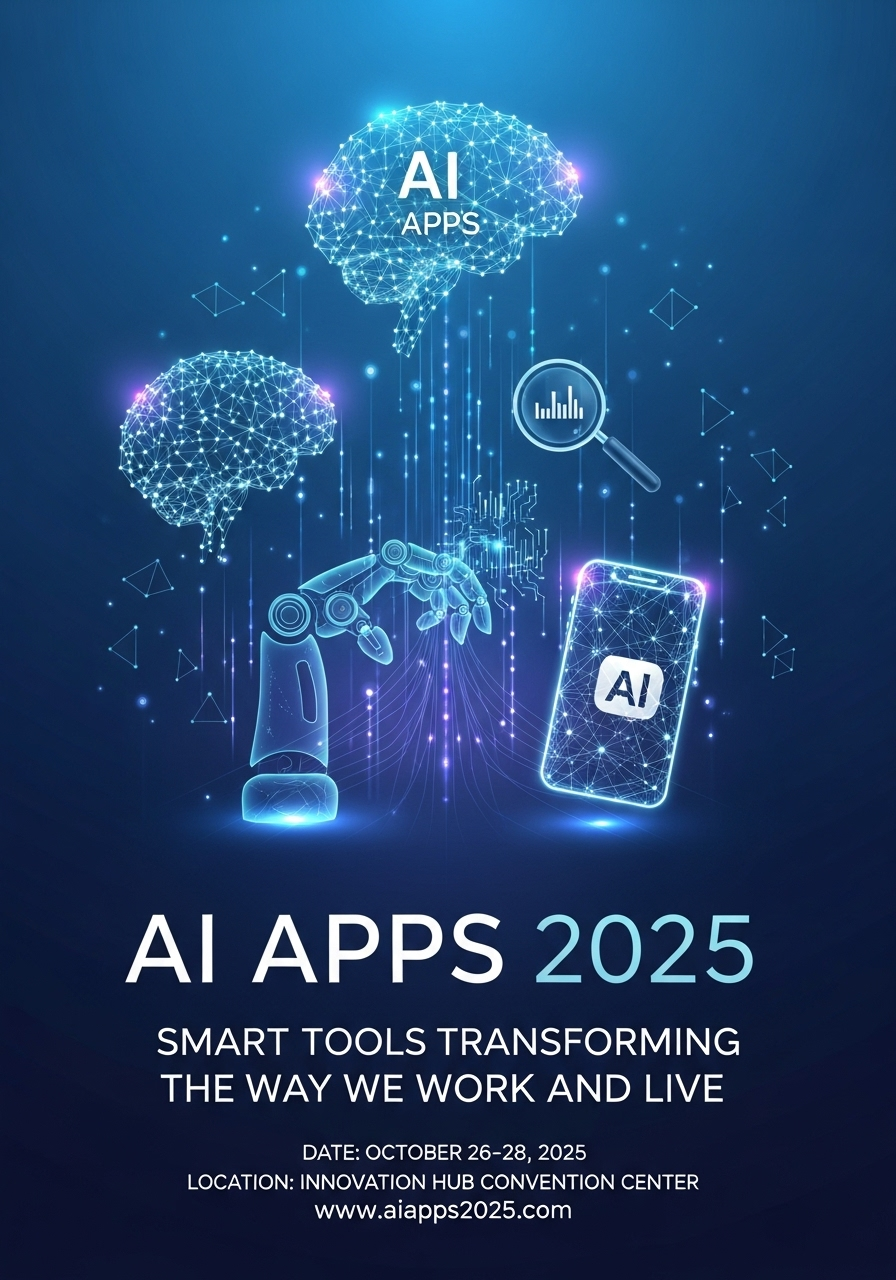AI Apps 2025: Smart Tools Transforming the Way We Work and Live
Source Credit: ChatGPT. Image credit: Google AI Studio
Introduction
AI apps are redefining how people work, create, and communicate in 2025.
From business automation to personal productivity, these intelligent tools are helping users save time, improve accuracy, and unlock creativity like never before.
Let’s explore how AI-powered applications are changing industries and daily life around the world.
1. What Are AI Apps?
AI apps use artificial intelligence and machine learning to perform tasks that usually require human intelligence — like understanding language, recognizing images, predicting outcomes, or generating content.
They combine automation with personalization, making technology smarter, faster, and more intuitive for every user.
💡 Example: ChatGPT, Copilot, and Notion AI can generate text, brainstorm ideas, and summarize information in seconds.
2. AI Apps for Business and Productivity
Companies are adopting AI apps to boost efficiency and streamline operations.
Apps like HubSpot AI, Zapier AI, and ClickUp Brain automate repetitive tasks such as scheduling, data entry, and reporting.
They also provide valuable insights that help businesses make better decisions and save time.
⚙️ Pro Tip: Use AI automation to handle customer support, lead tracking, and marketing campaigns — all from one dashboard.
3. Creative AI Apps for Designers and Marketers
Creativity and AI now go hand in hand.
Apps like Canva AI, Adobe Firefly, and Runway ML allow designers, marketers, and content creators to generate stunning visuals, videos, and campaigns instantly.
AI helps professionals experiment faster and bring ideas to life with less effort.
🎨 Insight: AI design apps can create entire brand kits — from logos to website templates — in minutes.
4. AI Apps in Education and Learning
AI is transforming education by making learning personalized and interactive.
Apps like ChatGPT Edu, Duolingo Max, and Socratic by Google use natural language understanding to explain concepts, quiz students, and adapt lessons to individual learning styles.
📚 Example: Students can ask an AI tutor to explain math problems, translate text, or summarize a history chapter instantly.
5. AI Apps for Everyday Life
AI isn’t just for work — it’s part of everyday life.
Personal assistants like Google Gemini, Apple Intelligence, and Amazon Alexa help users manage schedules, send reminders, control smart homes, and even recommend healthy habits.
AI wellness apps like Calm AI and Fitbit Coach use data to improve mental health and fitness routines.
🧠 Fact: 65% of smartphone users now rely on at least one AI-powered app daily.
6. The Future of AI Apps
The next generation of AI apps will be more connected, conversational, and autonomous.
They’ll anticipate user needs, make decisions independently, and integrate across devices seamlessly — creating a world where technology truly works with us, not just for us.
🚀 Vision: By 2030, AI apps will become “digital partners” — managing personal data, projects, and goals in real time.

